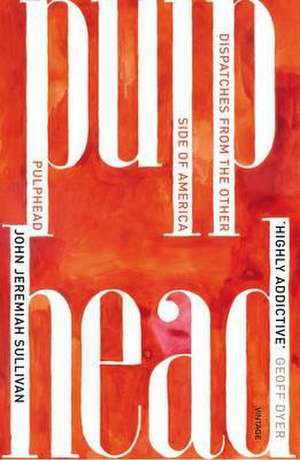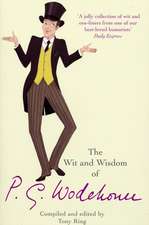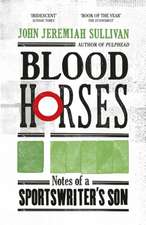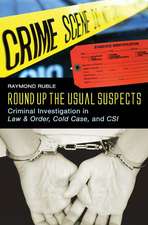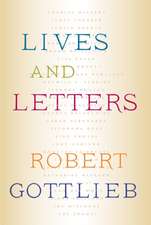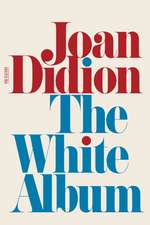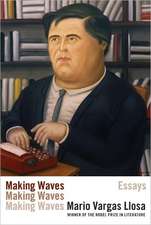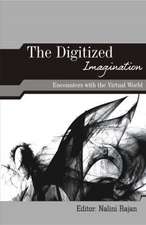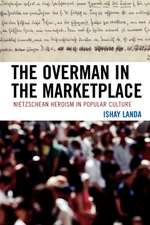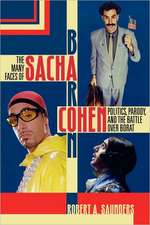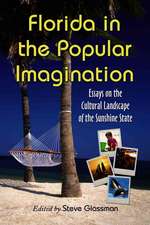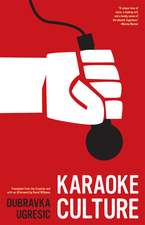Pulphead
Autor John Jeremiah Sullivanen Limba Engleză Paperback – 2 aug 2012
| Toate formatele și edițiile | Preț | Express |
|---|---|---|
| Paperback (2) | 108.28 lei 3-5 săpt. | |
| Farrar Straus Giroux – 30 sep 2011 | 108.28 lei 3-5 săpt. | |
| Vintage Publishing – 2 aug 2012 | 119.49 lei 3-5 săpt. | +12.80 lei 7-13 zile |
Preț: 119.49 lei
Nou
Puncte Express: 179
Preț estimativ în valută:
22.86€ • 23.87$ • 18.92£
22.86€ • 23.87$ • 18.92£
Carte disponibilă
Livrare economică 15-29 martie
Livrare express 01-07 martie pentru 22.79 lei
Preluare comenzi: 021 569.72.76
Specificații
ISBN-13: 9780099572350
ISBN-10: 0099572354
Pagini: 416
Dimensiuni: 131 x 197 x 32 mm
Greutate: 0.31 kg
Editura: Vintage Publishing
ISBN-10: 0099572354
Pagini: 416
Dimensiuni: 131 x 197 x 32 mm
Greutate: 0.31 kg
Editura: Vintage Publishing
Recenzii
The age-old strangeness of American pop culture gets dissected with hilarious and revelatory precision...Sullivan writes an extraordinary prose that's stuffed with off-beat insight gleaned from rapt, appalled observations and suffused with a hang-dog charm. The result is an arresting take on the American imagination.--"Publishers Weekly" (starred review)
"Sullivan's essays have won two National Magazine Awards, and here his omnivorous intellect analyzes Michael Jackson, Christian rock, post-Katrina New Orleans, Axl Rose and the obscure 19th century naturalist Constantine Rafinesque. His compulsive honesty and wildly intelligent prose recall the work of American masters of New Journalism like Hunter S. Thompson and Tom Wolfe." --"Time"
"Sullivan's essays stay with you, like good short stories--and like accomplished short fiction, they often will, over time, reveal a fuller meaning . . . Whether he ponders the legacy of a long-dead French scientist or the unlikely cultural trajectory of Christian rock, Sullivan imbues his narrative subjects with a broader urgency reminiscent of other great practitioners of the essay-profile, such as "New Yorker" writers Joseph Mitchell and A. J. Liebling or Gay Talese during his '60s "Esquire" heyday . . . ["Pulphead"] reinforces [Sullivan's] standing as among the best of his generation's essayists.
"Sullivan seems able to do almost anything, to work in any register, and not just within a single piece but often in the span of a single paragraph..."Pulphead" is the best, and most important, collection of magazine writing since Wallace's "A Supposedly Fun Thing I'll Never Do Again."..Sullivan's writing is a bizarrely coherent, novel, and generous pastiche of the biblical, the demotic, the regionally gusty and the erudite." --"The New York Times Book Review"
["Pulphead "is] a big and sustaining pile of--as I've heard it put about certain people's fried chicken--crunchy goodness . . . What's impressive about "Pulphead" is the way these disparate essays cohere into a memoirlike whole. The putty that binds them together is Mr. Sullivan's steady and unhurried voice. Reading him, I felt the way Mr. Sullivan does while listening to a Bunny Wailer song called 'Let Him Go.' That is, I felt 'like a puck on an air-hockey table that's been switched on.' Like well-made songs, his essays don't just have strong verses and choruses but bridges, too, unexpected bits that make subtle harmonic connections . . . The book has its grotesques, for sure. But they are genuine and appear here in a way that put me in mind of one of Flannery O'Connor's indelible utterances. 'Whenever I'm asked why Southern writers particularly have a penchant for writing about freaks, ' O'Connor said, 'I say it is because we are still able to recognize one.'" --"The New York Times"
"Sullivan's essays have won two National Magazine Awards, and here his omnivorous intellect analyzes Michael Jackson, Christian rock, post-Katrina New Orleans, Axl Rose and the obscure 19th century naturalist Constantine Rafinesque. His compulsive honesty and wildly intelligent prose recall the work of American masters of New Journalism like Hunter S. Thompson and Tom Wolfe." --"Time"
"Sullivan's essays stay with you, like good short stories--and like accomplished short fiction, they often will, over time, reveal a fulle
"Sullivan's essays have won two National Magazine Awards, and here his omnivorous intellect analyzes Michael Jackson, Christian rock, post-Katrina New Orleans, Axl Rose and the obscure 19th century naturalist Constantine Rafinesque. His compulsive honesty and wildly intelligent prose recall the work of American masters of New Journalism like Hunter S. Thompson and Tom Wolfe." --"Time"
"Sullivan's essays stay with you, like good short stories--and like accomplished short fiction, they often will, over time, reveal a fuller meaning . . . Whether he ponders the legacy of a long-dead French scientist or the unlikely cultural trajectory of Christian rock, Sullivan imbues his narrative subjects with a broader urgency reminiscent of other great practitioners of the essay-profile, such as "New Yorker" writers Joseph Mitchell and A. J. Liebling or Gay Talese during his '60s "Esquire" heyday . . . ["Pulphead"] reinforces [Sullivan's] standing as among the best of his generation's essayists.
"Sullivan seems able to do almost anything, to work in any register, and not just within a single piece but often in the span of a single paragraph..."Pulphead" is the best, and most important, collection of magazine writing since Wallace's "A Supposedly Fun Thing I'll Never Do Again."..Sullivan's writing is a bizarrely coherent, novel, and generous pastiche of the biblical, the demotic, the regionally gusty and the erudite." --"The New York Times Book Review"
["Pulphead "is] a big and sustaining pile of--as I've heard it put about certain people's fried chicken--crunchy goodness . . . What's impressive about "Pulphead" is the way these disparate essays cohere into a memoirlike whole. The putty that binds them together is Mr. Sullivan's steady and unhurried voice. Reading him, I felt the way Mr. Sullivan does while listening to a Bunny Wailer song called 'Let Him Go.' That is, I felt 'like a puck on an air-hockey table that's been switched on.' Like well-made songs, his essays don't just have strong verses and choruses but bridges, too, unexpected bits that make subtle harmonic connections . . . The book has its grotesques, for sure. But they are genuine and appear here in a way that put me in mind of one of Flannery O'Connor's indelible utterances. 'Whenever I'm asked why Southern writers particularly have a penchant for writing about freaks, ' O'Connor said, 'I say it is because we are still able to recognize one.'" --"The New York Times"
"Sullivan's essays have won two National Magazine Awards, and here his omnivorous intellect analyzes Michael Jackson, Christian rock, post-Katrina New Orleans, Axl Rose and the obscure 19th century naturalist Constantine Rafinesque. His compulsive honesty and wildly intelligent prose recall the work of American masters of New Journalism like Hunter S. Thompson and Tom Wolfe." --"Time"
"Sullivan's essays stay with you, like good short stories--and like accomplished short fiction, they often will, over time, reveal a fulle
Notă biografică
John Jeremiah Sullivan is" "a contributing writer for "The New York Times Magazine" and the southern editor of "The Paris Review." He writes for "GQ," "Harper's Magazine," and "Oxford American," and is the author of "Blood Horses." Sullivan lives in Wilmington, North Carolina.
